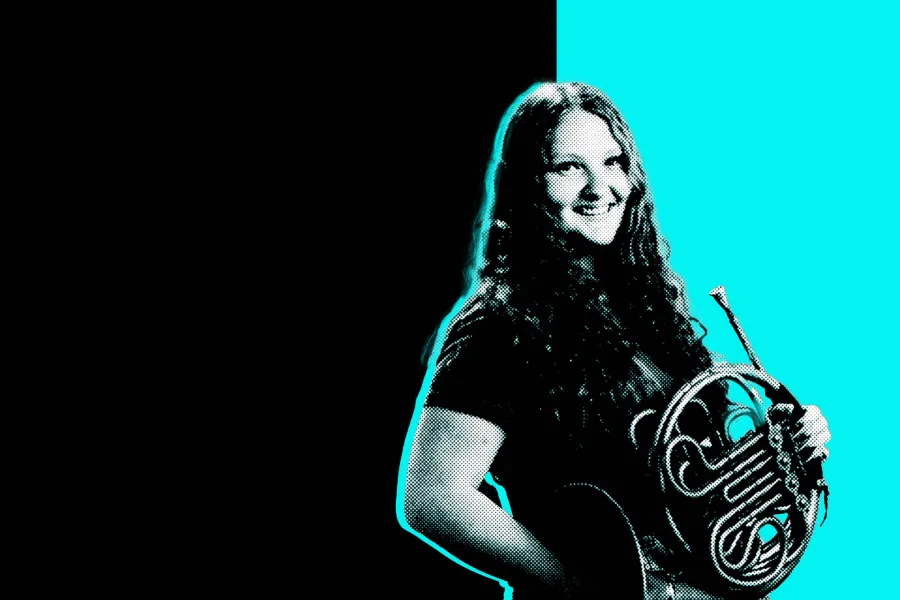
Farkhad Khudyev, conductor
This program will last about 80 minutes with one intermission.
Program
Donald Grantham
Baron Cimetiére’s Mambo
world premiere of orchestral arrangement
Gara Garayev
Seven Beauties Ballet Suite Texas premiere
Introduction
Waltz
Adagio
The Most Beautiful of all Beauties
intermission
Igor Stravinsky
The Firebird Suite 1919 version
Introduction
L'Oiseau de feu et san danse & Variation de l'oiseau de feu
Ronde des princesses
Danse infernale du roi Kastcheï
Berceuse
Final
About the Program
Program notes by Mark Bilyeu.
Donald Grantham
Baron Cimetiere’s Mambo
Born November 9, 1947, Duncan, OK
Composed 2004
Premiered May 25, 2004 J.P. Taravella High School Wind Orchestra (Nikk Pilato, conductor)
Duration 6 minutes
Donald Grantham is the recipient of numerous awards and prizes in composition, including the Prix Lili Boulanger, the Nissim/ASCAP Orchestral Composition Prize, First Prize in the Concordia Chamber Symphony's Awards to American Composers, alongside a Guggenheim Fellowship, and three grants from the National Endowment for the Arts. Dr. Grantham's music has been praised for its "elegance, sensitivity, lucidity of thought, clarity of expression and fine lyricism" in a Citation awarded by the American Academy and Institute of Arts and Letters. Grantham serves as the Frank C. Erwin, Jr. Centennial Professor of Music at The University of Texas at Austin. Of his work, Baron Cimetiere’s Mambo, he writes:
In Voodoo lore, Baron Cimetiére is the loa (spirit) who is the keeper and guardian of cemeteries, hence one of the spirits in charge of the intersection between life and death. ["Cimetiére" is French for "cemetery."] Depictions of him are, needless to say, quite chilling. He is usually pictured in dark tailcoat and tall dark hat – like an undertaker – wearing dark glasses with one lens missing. He carries a cane, smokes cigars, and is a notorious mocker and trickster. (The Haitian dictator ‘Papa Doc’ Duvalier is said to have imitated the Baron’s sartorial style in order to intimidate any opponents who were practitioners of Voodoo.)
I first came across Baron Cimetiére in Russell Bank’s fascinating novel Continental Drift, which deals with the collision between American and Haitian culture during the “boat people” episodes of the late 1970s and early ‘80s. Voodoo is a strong element of that novel, and when my mambo began to take on a dark, mordant, sinister quality, I decided to link it to the Baron.
Gara Garayev
Seven Beauties Ballet Suite
Born February 5, 1918, Baku, Azerbaijan
Died May 13, 1982, Moscow, Russia
Composed 1947-1948
Premiered November 7, 1952, Azerbaijan State Academic Opera and Ballet Theater. Baku, Azerbaijan,
Duration 18 minutes
At the age of 20, he had his first public premiere: his cantata The Song of the Heart to the poem by the Azerbaijani writer Rasul Rza. It premiered at Moscow’s famed Bolshoi Theater, in the presence of Joseph Stalin. Following the premiere, Garayev moved to Moscow to study with Dmitri Shostakovich at the Moscow State Conservatory. Three years later, at the age of 23, he returned to his hometown of Baku to teach at Azerbaijan State Philharmonic Society. In the years following, he would be awarded two separate Stalin Prizes (a Soviet equivalent to the American Pulitzer Prize), and would go on to hold the Chair of the Union of Composers of Azerbaijan SSR, and serve as the rector of the Azerbaijan State Conservatoire. His ballet Seven Beauties pulled from the epic poem by Persian poet Nizami Ganjavi, written in 1197. It is considered the first ballet by an Azerbaijani composer, opening the door for many composers after him (including his own son). Seven Beauties tell the story of Bahram Shah, the real life king who reigned from 420 to 438. Ganjavi’s poem crafted a mythical legend of fated love between the artisan girl Aysha, Bahram Shah, and his diabolical Vizier. The second movement depicts the meeting of these lovers, before the Vizier shows Bahram a cloth with images of seven beauties (it would appear, to distract him from Aysha). Each beauty is as unique as their homeland, at turns graceful, dangerous, flirtatious, seductive, and even demure. The Shah could have it all, \but continues to pine for Aysha: a choice that ultimately causes destruction upon his people. The suite ends with a macabre march, and the people he was entrusted to protect begin their horrifying journey into exile.
Igor Stravinsky
The FIrebird Suite
Born June 17, 1882, Lomonosov, Saint Petersburg, Russia
Died April 6, 1971, New York, NY
Composed 1909-1910, rev. 1919
Premiered June 25, 1910, Paris Opera
Duration 22 minutes
The 23-year old Igor Stravinksy paused progress on his opera The Nightingale to undertake a new bird project: a collaboration at Paris’s newly-minted Ballet Russes with its visionary Artistic Director Sergei Diaghilev, entitled The Firebird. The young Stravinsky was still an unknown, but after the more well-established (and notoriously lazy) Anatoly Liadov failed to meet deadlines, Diaghilev turned to the composer whose small catalog had made a large impression on him, and thus, a seminal artistic team was born. Stravinsky had inherited the mantle of Russian orchestral color from his teacher Rimsky-Korsakov, and added to this his own acerbic rhythmic vitality. The Firebird was a new story of familiar characters, pulling from several threads of Russian folklore. In it, they tell the story of the downfall of a powerful, ogre-like figure of evil, Kastchei the Deathless, at the hand of the hero Crown Prince Ivan. To do so, he must take control of Kastchei’s soul, which is found hidden inside a needle in an egg, which is in a duck, within a rabbit which is kept inside an iron chest, which has been buried under an oak tree on an island (logically). The suite opens in Kastchei’s magical realm, where Ivan encounters the Firebird, shimmering and radiant. He notices a princess, who has been captured by the evil Kastchei. The villain refuses to release her to Price Ivan, and commands his army to attack. Protected by the Firebird, Kastchei’s followers are instead compelled to dance into exhaustion (“Infernal Dance”), until they collapse, and fall into an eternal asleep (the bassoon’s “Berceuse,” is worth the price of admission). Ivan must now destroy the egg containing Kastchei’s soul. After his successful mission, the horn announces the sunrise, leading to one of the most joyous Finales in the orchestral canon. The work was an immediate sensation, with Henri Ghéon calling it “the most exquisite marvel of equilibrium that we have ever imagined between sounds, movements and forms.” The savvy Stravinsky, knowing he had a hit on his hands, almost immediately crafted an orchestral suite (and then two more), which he would go on to conduct across the globe for the entirety of his career.
About The Artists
Farkhad Khudyev
Farkhad Khudyev is the winner of the Gold Medal “Beethoven 250” at the 1st International Arthur Nikisch Conducting Competition; the Solti Foundation US 2018 and 2022 Career Assistance Award; the Best Interpretation Prize at the 1st International Taipei Conducting Competition; the 3rd prize at the 8th International Sir Georg Solti Conducting Competition; and the Gold Medal/Grand Prize at the 2007 National Fischoff Competition. Khudyev has worked with orchestras worldwide including the London Philharmonic Orchestra, Frankfurt Radio Symphony Orchestra, Frankfurt Opera Orchestra, Danish National Symphony Orchestra, Seattle Symphony, Dallas Symphony, Los Angeles Philharmonic, San Diego Symphony, Monterey Symphony, George Enescu Philharmonic Orchestra, Xi’an Symphony Orchestra and the State Taipei Chinese Orchestra. Farkhad was born in Turkmenistan, where he studied at the State Music School for gifted musicians, and then completed his studies at Interlochen Arts Academy, Oberlin Conservatory and Yale University. Khudyev serves as the Music Director of the University of Texas Symphony Orchestra in Austin, and the Orchestral Institute at the Hidden Valley Institute of the Arts in Carmel, California.
Symphony Orchestra
Violin I
Emmanuelle Sievers, concertmaster
Kyle Adams
Summer Bradshaw
Noah Briones
Oliver Fiorello
Brandon Garza
Seva Joshi
Han Na Lee
Kai Lindsey
Wai Shan Ma
Suhaas Patil
Jackie Shim
Sui Shimokawa
Misa Stanton
Zichuan Wang
Qiyan Xing
Yusong Zhao
Lamu Zhaxi
Violin II
Yida An, principal
Cade Carter
Wells Gjerlow
Georgia Halverson
Na-Yeon Kim
Evelyn Lee
Suhyun Lim
Kai Lindsey
Mei Liu
Ivan Arras Morales
Alice Pak
Pedro Salas
Jimmy Shim
Emma Thackeray
Chloe Yofan
Mia Zajicek
Tina Zhao
Viola
Anahit Matevosyan, principal
Gauri Binup
Ying-Chen Chen
Gracie Dias
Nelle Joung
Harrison Knight
Cecilia Nguyen
Dean Roberts
Kendall Weaver
Emily Whitney
Cello
Tsz To Wong, principal
Katsuaki Arakawa
Johnathan Brodie
Regina Canales
Xinke Fu
Madison Garrett
William Han
Je-Shiuan Hsu
Aili Kangasniemi
Melody Lihou
Nicole Parker
William Pu
Mika Syms
Christopher Tran
Selina Xu
Yochen Zhong
Double Bass
Gonzalo Kochi Kikuchi, principal
Sulayman Bowles
Shiying Feng
Aizza Guerrero
Darrin Luong
Justin McLaughlin
Eddie Otto
Will Penn
Kaitlyn Ruiter
Tony Sanfilippo
Rosemarijn Van De Lint
Mirabai Weatherford
Xingchang Ye
Flute
Molly Damitio1,2
Eunha Kim
Kathryn Worsham3
Oboe
Lademi Davies1,2
Mary Creel3
Clarinet
Jacob Bricker1
Nathan Richey2
Alexander Vaquerizo3
Bassoon
Mallory Mahoney1
Jollie Hammerstein2
Thomas Klink3
Horn
Cheryll Huddleston1
Daniela Garcia2
Lucas Hamilton3
Trumpet
William Paladino1, 2
Michael Hawes3
Trombone
Jorge Rodriguez1, 2
Brandon Reyes3
Tuba
Tyler Lane
Percussion
Matt Garcia
Marcos Jurado
Caroline Richards
Michael Rivera Gonzalez
Sean Simpson
Seth Underwood
Harp
Natalie Rochen
Keyboard
Hsin-Tzu Chang
Hyuna Shin
PRINCIPALS
1. Grantham
2. Garayev
3. Stravinsky
*String players are listed alphabetically
Upcoming Events

Butler School of Music Presents
Les Noces
By Igor Stravisnky
and Ballet Mécanique by Geroge Antheil
FEATURING
Experimental & Electronic Music Studio
Concert Chorale
Percussion Ensemble
Patti Wolf, Rick Rowley, & Andrew Brownell, piano
Leah Crocetto, soprano
Page Stephens, mezzo soprano
Evan Brown, tenor
Mikhail Smigelski, bass
Thursday, October 17, 7:30 p.m.
Bates Recital Hall
University Orchestra
Tuesday, October 8, 7:30 pm.
Bates Recital Hall
Symphony Orchestra
Saturday, October 27, 7:30 p.m.
Bates Recital Hall
University Orchestra
Tuesday, November 19, 7:30 p.m.
Bates Recital Hall
Symphony Orchestra
Monday, December 9, 7:30 p.m.
Bates Recital Hall
Event Details
$5–15
All University of Texas at Austin students are allowed one free ticket as long as they are available. Student tickets must be picked up at the Box Office with valid student I.D. Seating is unassigned.
If you are a patron with ADA needs, please email tickets@mail.music.utexas.edu and we will reserve ADA seating for you.

